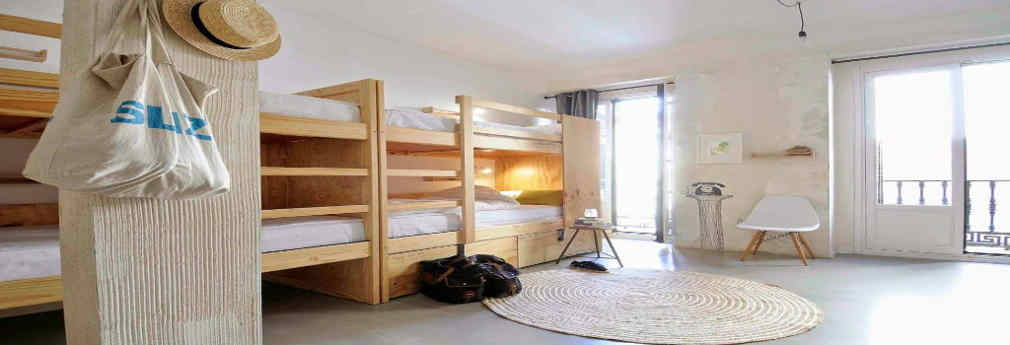Turned in to the new meeting points for restless travellers, hostels and low cost hotels offer accommodation in comfortable rooms that meet the basic needs (bathroom, good matress, internet…) of these travellers in the heart of cities, without giving up design, a close, familiar approach and the possibility of exchanging experiences. This is the new philosophy that travellers are demanding and that is making hotel chains and individual hotel owners to re-think about their actual accommodation plan and replace it by modern models like Chic & Basic, The Hat Madrid, Casa Gracia Barcelona Hostel or Generator hostel.

Chic, design and modern low cost rooms in the heart of the cities with common areas that encourage clients to interact with each other and with a wireless internet connection.. all for 30 to 90 euros per person. Is this possible? At least this is the aim of the new hostels and low cost hotels that are appearing in the most trendy cities of Spain. Accommodation addressed to short-break travellers, with a tight budget and light luggage that prefer to sleep in a safe surrounding in the center of the cities, in order to save time traveling and enjoy the company of other travellers, as part of their travel experiences.
What makes the operative model of low cost hotels and hostels attractive versus a conventional hotel?
The success of this model is focused in creating rooms that are comfortable and cover all basic needs, with the same cost as a 2* hotel but with the appearance of a 4*. Offering quality facilities in comfortable and wide common areas such as: kitchen, living room, games room, etc. With essential services for a segment of travellers that wants to pay lower prices and doesn’t need a gym, swimming pools, restaurants or big common areas that they will not use, that they pay for indirectly in a conventional hotel.

In general terms, hostels and low cost hotels have a much simpler operation, as they usually sell beds individually with shared bathrooms and few rooms with a double bed, like at the Fleming hostel. They offer small rooms of approximately 16 square metres that allow a higher income, results and return on investment per square metre than a room in a conventional hotel. They bet for architectural innovation using uncostly materials (Brick Hotel) and technology that helps to make these units profitable. As well as charging extra for amenities: towels, soap, razors, locks, etc…
This type of establishment usually has between 6 and 11 employees with multiple tasks and optimize expenses by outsourcing certain services such as cleaning, security and food and beverage. Reducing staff costs as much as possible, that is also possible due to the new money-saving technology used.

the hotel factory is involved in this boom of new projects of hostels and low cost hotels started by independent operators. The aim of this type of accommodation is to adjust the investment, focus on the most valued attributes by guests and to introduce differentiating elements versus the competitive set. At the moment, it is one of the most dynamic hotelier investment sector, because of its capacity of adaptation and cost-effectiveness.








